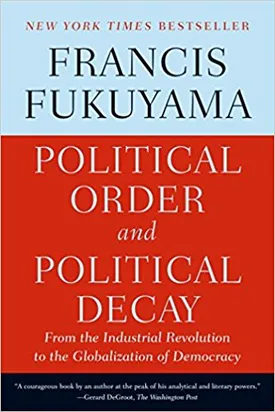Francis Fukuyama
Francis Fukuyama is an American political theorist and economist, best known for his book The End of History and the Last Man, in which he wrote about the post-Cold War world. Fukuyama is also a prominent public intellectual and a former Deputy Director of the US Department of State. He is currently the Olivier Nomellini Senior Fellow at the Freeman Spogli Institute for International Studies at Stanford University and a professor at the School of Public Policy at George Mason University.
Born in 1952 in the United States, Fukuyama studied Classics and Political Science at Cornell University, where he earned both his Bachelor and Master’s Degrees. After graduating, he joined the Reagan administration’s State Department. During the 1980s and 1990s, Fukuyama was involved in a number of negotiations, focusing on disarmament and Latin American policy. He also spent two years at the RAND Corporation researching security issues and the proliferation of weapons of mass destruction. In 1992, he published The End of History and the Last Man, which established him in academia.
The End of History and the Last Man is Fukuyama’s most famous work. In the book, he argues that history has ended in the sense that the world has reached its optimal societal form in the form of liberal democracy. His argument centers around the idea that Western democratic values will ultimately be adopted universally and are thus the underlying constants of human behavior. In other words, Fukuyama states that no other political or economic systems can compare to democracy, and that the world will eventually come to this realization.
In the time since its publication, Fukuyama has continued to explore how ideas shape history and the development of societies. He has written a number of other books including The Great Disruption: Human Nature and the Reconstitution of Social Order, State Building: Governance and World Order in the 21st Century and The Origins of Political Order: From Prehuman Times to the French Revolution. The Origins of Political Order explores the development of human societies from their earliest beginnings to the present day. Most recently, he has produced The Free Society and Its Enemies, a book that presents his views on the role of the government in the presence of a free society.
Though Fukuyama's work has been subject to much debate and criticism, it continues to be highly influential. Many academics have expressed admiration for his refusal to be swayed by current political ideologies and his ability to construct arguments that are both relevant and timely. Fukuyama is also a prolific public speaker and has made appearances on numerous academic and news programs.
Today, Fukuyama continues to write and lecture extensively in the US and abroad. His ideas have been extremely valuable in understanding the evolution of democratic systems and the nature of international relations. Fukuyama’s work serves as inspiration to all those seeking to bring about political, economic and social change.

